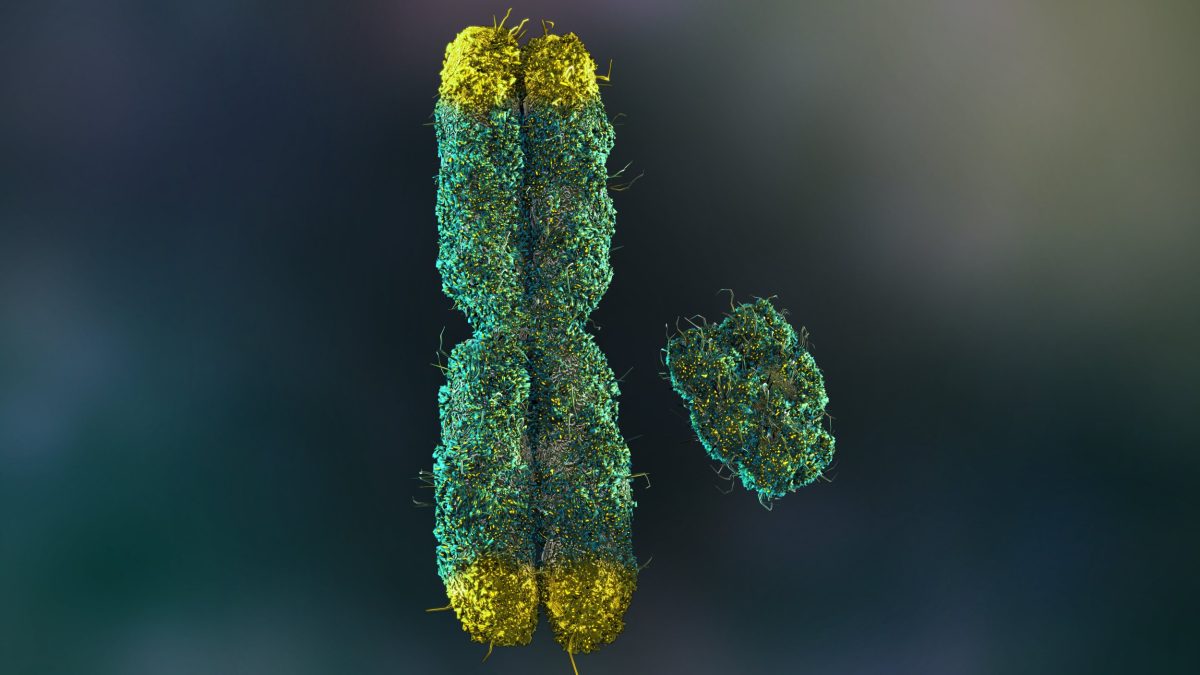Science
Study Reveals Y Chromosome Loss Linked to Accelerated Aging

Recent research has uncovered a troubling trend: men are increasingly losing their Y chromosomes as they age, a phenomenon that may accelerate the aging process and heighten the risk of various medical conditions. This finding has significant implications for understanding male health and longevity.
The Y chromosome, which plays a crucial role in determining male sex and contributes to sperm production, has long been viewed primarily through the lens of reproduction. However, studies now indicate that the implications of Y chromosome loss extend far beyond its traditional functions.
As men grow older, it has become apparent that some of their cells may lose the Y chromosome entirely. Research suggests that by the age of 70, nearly two in five men exhibit detectable Y loss in their cells. Initially, it was believed that losing this chromosome would not impact adult health since its primary role occurs during embryonic development. Yet studies, beginning in 2014, have shown a correlation between Y loss and a reduction in lifespan, with affected individuals potentially dying five years earlier than their counterparts.
Health Risks Associated with Y Loss
The implications of Y chromosome loss are alarming. It has been associated with an increased risk of heart disease, cancer, and Alzheimer’s disease. According to Professor John Perry of the University of Cambridge, while observational studies suggest these correlations, they do not definitively prove causation. “Y loss could just be an innocent bystander, a marker of aging,” he stated.
Further complicating the picture, Professor Perry’s 2019 research indicated that men with certain genetic predispositions are more likely to experience Y loss. These genes, located on non-sex-determining chromosomes, may contribute to errors in DNA replication, potentially leading to an array of health issues, including heart disease and cancer.
Despite these findings, subsequent research has suggested that Y chromosome loss may indeed have direct health implications. For example, Dr. Lars Forsberg of Uppsala University conducted studies involving mice with immune systems lacking the Y chromosome, which subsequently developed heart disease. This research points to a more direct role for Y loss in health outcomes than previously thought.
The Role of Senescent Cells in Aging
Another key area of investigation relates to the accumulation of senescent cells in the body as we age. Senescent cells are damaged cells that can negatively impact tissue function. Under normal circumstances, the immune system eliminates these cells. However, research indicates that immune cells lacking the Y chromosome are less effective in doing so, which could explain the link between Y loss and various age-related diseases.
Dr. Forsberg’s findings suggest that the mechanisms linking Y loss to health issues may be more complex than a simple correlation. This raises important questions about the biological role of the Y chromosome in aging and disease resistance.
Men may be motivated to pay closer attention to their health in light of these findings. Dr. Forsberg estimates that Y chromosome loss could account for up to half of the difference in lifespan between men and women, with women living an average of 83 years compared to 79 for men.
For those concerned about Y chromosome loss, health experts recommend adhering to general health guidelines, such as maintaining a balanced diet and avoiding smoking. While blood tests can identify Y loss, they currently offer little actionable insight for most men.
As research into the effects of Y chromosome loss continues, scientists are exploring potential treatments that target the removal of senescent cells from the body. If these treatments prove effective, they may provide a pathway to mitigate some of the adverse effects linked to Y loss and improve overall male health outcomes.
Understanding the complexities of the Y chromosome is essential not just for the scientific community but also for public health. As this area of research evolves, it may lead to significant advancements in how we approach aging and disease prevention in men.
-

 Entertainment3 months ago
Entertainment3 months agoAnn Ming Reflects on ITV’s ‘I Fought the Law’ Drama
-

 Entertainment4 months ago
Entertainment4 months agoKate Garraway Sells £2 Million Home Amid Financial Struggles
-

 Health3 months ago
Health3 months agoKatie Price Faces New Health Concerns After Cancer Symptoms Resurface
-

 Entertainment3 months ago
Entertainment3 months agoCoronation Street’s Carl Webster Faces Trouble with New Affairs
-

 Entertainment3 months ago
Entertainment3 months agoWhere is Tinder Swindler Simon Leviev? Latest Updates Revealed
-

 Entertainment4 months ago
Entertainment4 months agoMarkiplier Addresses AI Controversy During Livestream Response
-

 Science1 month ago
Science1 month agoBrian Cox Addresses Claims of Alien Probe in 3I/ATLAS Discovery
-

 World2 weeks ago
World2 weeks agoBailey Announces Heartbreaking Split from Rebecca After Reunion
-

 Health4 months ago
Health4 months agoCarol Vorderman Reflects on Health Scare and Family Support
-

 Entertainment4 months ago
Entertainment4 months agoKim Cattrall Posts Cryptic Message After HBO’s Sequel Cancellation
-

 Entertainment3 months ago
Entertainment3 months agoOlivia Attwood Opens Up About Fallout with Former Best Friend
-

 Entertainment2 weeks ago
Entertainment2 weeks agoCoronation Street Fans React as Todd Faces Heartbreaking Choice









